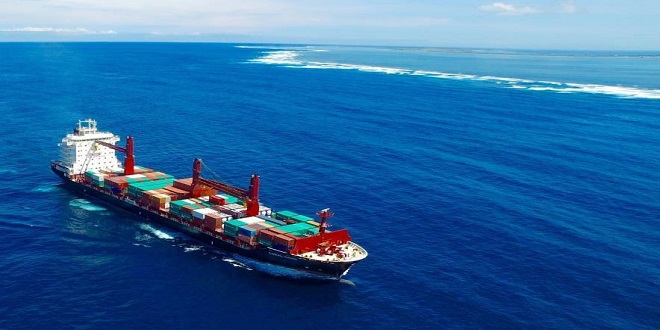The Hague and Hague Visby rules

Origin of the Hague Rules: the Harter Act
The breadth and efficacy of the exceptions regularly used by ship-owners led to concern among countries which were primarily cargo-owning, rather than ship-owning, namely the United States and the former British Dominions. The first step towards controlling such clauses was taken in the United States by the Harter Act of 1893, which imposed certain duties on the ship-owner and forbade certain types of exclusion. The division of responsibility on which it was based was this: the ship-owner could not contract out of a duty to use reasonable care to provide a seaworthy ship and in care of the cargo, and in return was exempted from liability for loss caused by his negligence in navigation and management of the ship (a concession partly based on the hazards of maritime adventures and partly on the assumption that the ship-owner is likely to look after his own ship). Similar legislation was soon adopted in New Zealand (1903), Australia (1904) and Canada (1910).
The Brussels Convention of 1924: the Hague Rules
Various factors, including continued dissatisfaction by cargo-owning countries, commercial problems caused by the handling of bills of lading containing differing terms and the UK government’s wish to introduce uniform legislation throughout the then British Empire, led to the formulation of the Hague Rules, so-called because an initial draft was settled at a meeting at The Hague in 1921. These were actually adopted at an international convention at Brussels in 1924. In general, the Rules adopt the same division of risks as the Harter Act, but seek to provide something nearer to a complete code for carriage by sea under bills of lading.
Application of the Rules
Under the 1924 Act, the Rules apply as follows:
- To outward shipments from UK ports (other than coastal trade). Problems arose where the contract contained a clause selecting the law of another country for such a shipment (the so called Vita Food gap, a problem of the conflict of laws traditionally associated with Vita Food Products Inc v Unus Shipping Co (1939)); and which appeared to declare that such a choice was effective.
- to such shipments, covered by a bill of lading – even when such is never issued (wrongfully, in error, or because the ship-owner lost the goods while loading them);
- to those loading and unloading operations which the contract places upon the carrier the ‘before and after’ problem, discussed in Pyrene v Scindia (1954), 19.1.1, below;
- they do not cover deck cargo and live animals;
- Such provisions as protect the carrier do not protect his employees or independent contractors (for example, stevedores). This was the problem of Midland Silicones v Scruttons (1962). In this case, the House of Lords held (Lord Denning dissenting) that a cargo owner who could not sue the ship-owner because of the rules in respect of damage to his goods could sue the stevedores who had (negligently) handled the goods.
Provisions of the Rules
The basic provisions of the Rules are that the ship-owner owes a duty to exercise due care (only) as to seaworthiness and care of cargo (Arts II, III.1.2 and IV.1). In return, he is exempted in 17 ways (Art IV.2(a)–(g)) of which the most conspicuous are negligence in navigation and management of the ship, fire unless caused by his actual fault, perils of the sea, war, seizure, strikes, inadequate packing and any other cause arising without his fault (for example, pilferage). These duties cannot be varied except to increase the ship owner’s responsibility.
The Hague-Visby Rules
The Hague Rules did not satisfy everyone and one school of thought sought to procure fairly minor amendments of detail to them, so as to eliminate certain well known problems. This led to the Hague-Visby Rules, a draft of which was adopted in Stockholm in 1963. The final protocol was adopted at Brussels in 1968 and enacted here as the Carriage of Goods by Sea Act 1971. The protocol did not, however, receive sufficient ratifications to be brought into force until 1977 (the UK not ratifying until 1976): it came into effect here on 23 June 1977. About 14 countries (including the Scandinavian countries and France) now give effect to them: other countries still retain the old Hague rules.
Finally Comment
In this case machinery had been shipped aboard a Dutch vessel at Leitch for carriage to the Dutch Antilles under a bill of lading which included a Dutch choice of law clause and provided that the Court of Amsterdam should have an exclusive jurisdiction over any dispute arising under the bill. The machinery was damaged on arrival in the Antilles and the shippers started proceedings in England. The ship-owners contended that the contract was subject to an exclusive jurisdiction of the Dutch courts and to Dutch law. Dutch law was still subject to The Hague Rules and therefore liability was limited to a lower figure than under The Hague Visby Rules. The House of Lords had no doubt that The Hague-Visby Rules applied, since the bill of lading had been issued in Scotland and carriage was from a Scottish port and the United Kingdom was a Contracting State.
With its comprehensive coverage and detailed analysis, it offers a valuable resource for trend enthusiasts. By providing accurate and timely information, Trendsactually keeps its audience ahead of the curve. Whether you’re a fashionista, a tech enthusiast, or simply someone who appreciates staying current, Trendsactually has something for everyone.





